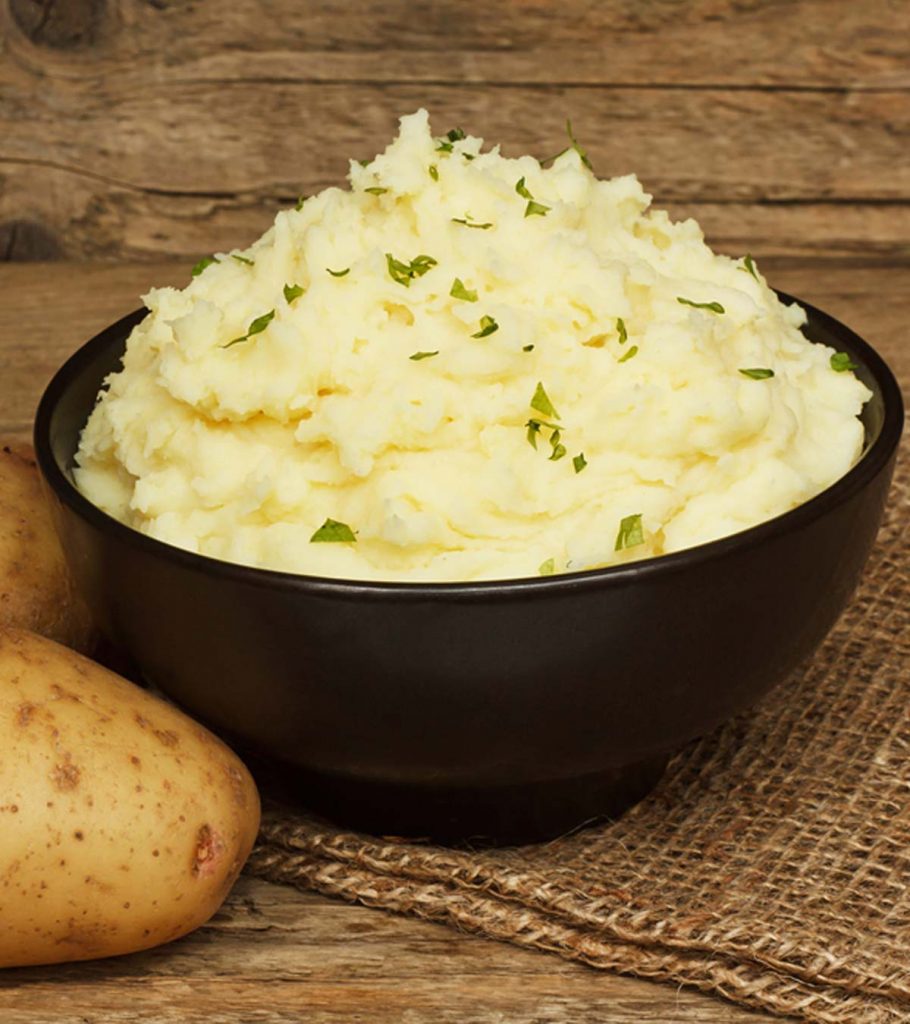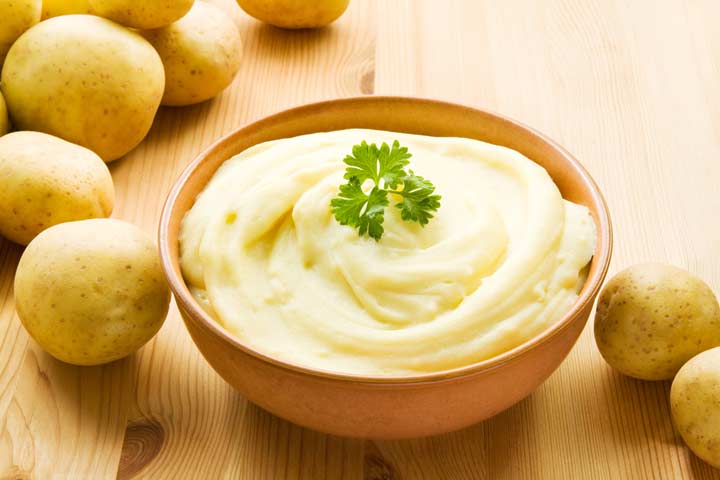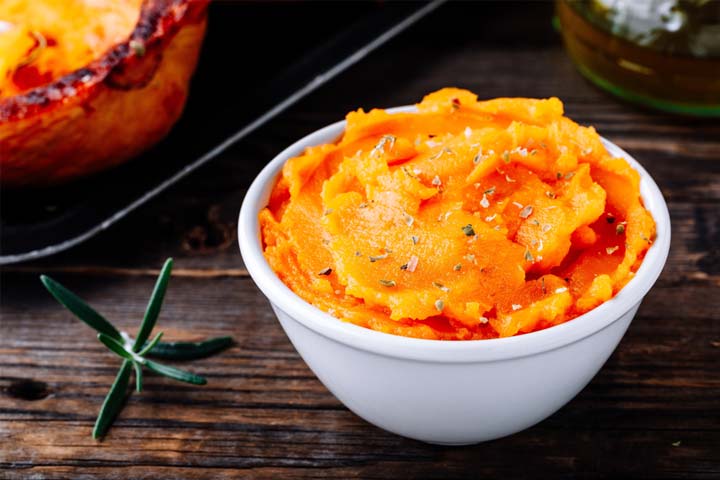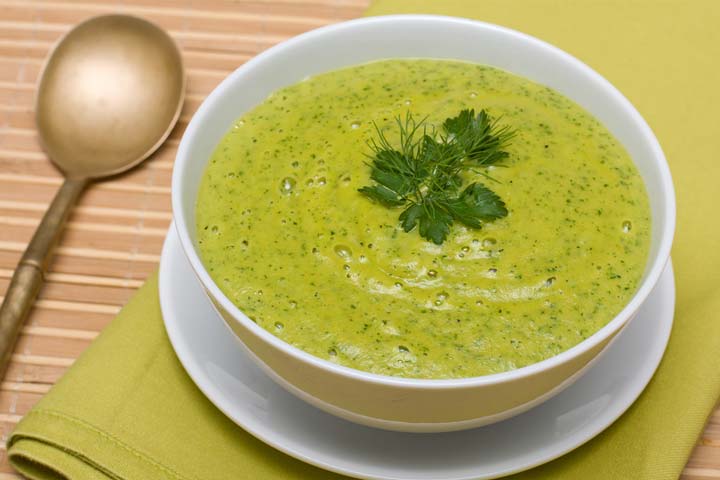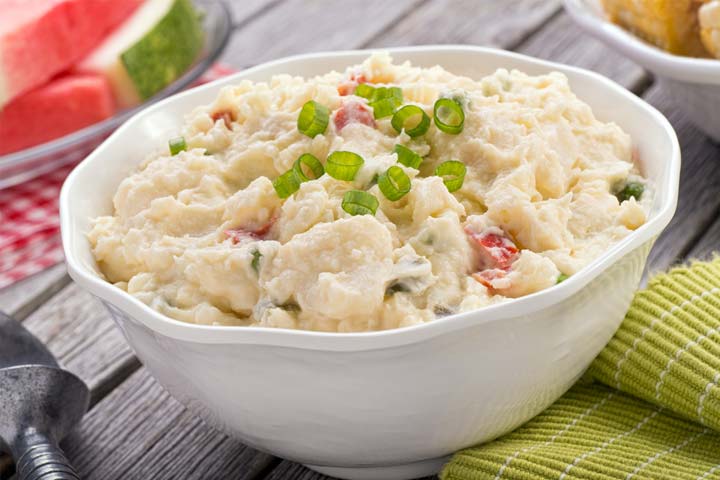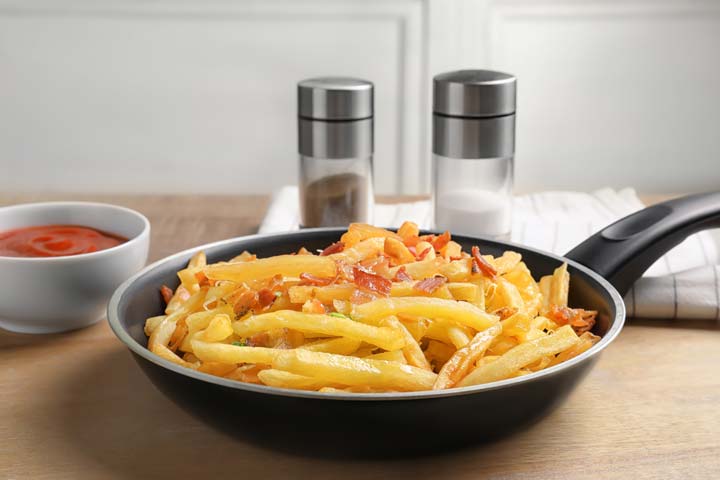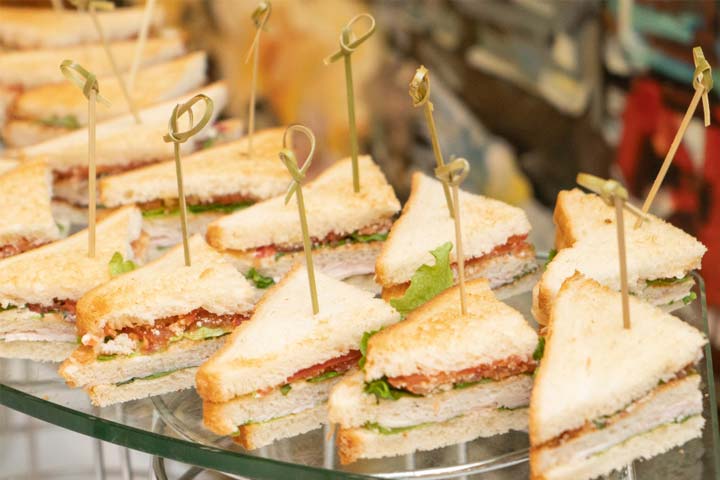If you are looking for foods to include in your little one’s weaning diet, one of the most popular vegetables that most parents consider is potatoes for babies. Potatoes belong to the nightshade family of vegetables (also included in the same family are eggplants, tomatoes, peppers, and chilies) and are consumed worldwide for their high nutritional value (1). White potato is believed to have higher levels of the essential mineral potassium compared to bananas or sweet potatoes.
Want to know some interesting recipes and age-appropriate age ways to include potatoes in your baby’s diet? Then read on.
When To Give Potatoes To Babies?
Infants can eat well-cooked potatoes from six to seven months of age (2) (3). When introducing solids, you can feed steamed or boiled potatoes as a puree or mash to let your baby adjust to its taste and digestibility. As the baby grows older, you can mix mashed or pureed potatoes with other pureed veggies and fruits.
Babies older than nine months can consume baked, roasted, or grilled potatoes as finger food. If you intend to feed potato chips, wedges, or other potato snacks to your toddler, then cut them into thin and small chunks to avoid choking (4).
Nutritional Value Of Potato
Potato is a carbohydrate-rich vegetable with essential nutrients, including vitamin C, B6, and potassium (5). Some of its common varieties consumed in the US are white rounds, red rounds, russets, yellows, blues, and fingerlings (6).
The nutritional value of these varieties vary, but on an approximation, feeding one boiled baby potato without skin (60 g) can provide the following nutrients to the baby (7) (8) (9) (10).
| Name | Amount | RDA (7-12 months) |
|---|---|---|
| Water | 43.3 g | – |
| Energy | 75 Kcal | – |
| Protein | 1.12 g | – |
| Carbohydrate, by difference | 12.3 g | – |
| Magnesium, Mg | 14.4 mg | 60 mg |
| Phosphorus, P | 28.8 mg | 275 mg (AI)* |
| Potassium, K | 223 mg | 700 mg |
| Sodium, Na | 100 mg | 200 mg |
| Vitamin C, total ascorbic acid | 7.26 mg | 50 mg (AI)* |
| Vitamin B6 | 0.193 mg | 0.6 mg |
*AI = Adequate intake – nutrient level assumed to ensure nutritional adequacy
Sources: U.S. Department of Agriculture, World Health Organization, and Oregon State University
Possible Health Benefits Of Potato For Babies
Potato is rich in starch and several micronutrients. Its nutrient-rich profile makes it an essential addition to a baby’s first foods list. The following are some of the notable benefits of potatoes for babies.
- Easy to consume: Well-cooked potatoes are easy to swallow due to their soft and mushy texture. Besides, its neutral taste makes it an excellent choice to blend with different foods, like cereals, pulses, meat, and leafy vegetables.
- Rich in energy:One baby potato provides approximately 75 Kcal of energy (7). Babies older than six months require an energy-rich diet to support their rapid growth and development (11).
- Contains micronutrients: Potatoes contain considerable amounts of magnesium, potassium, sodium, vitaminC, and vitamin B6 that are required to maintain the health of a baby.
- Helps in proper digestion: Potatoes containresistant starchiXA fraction of starch that cannot be digested or absorbed but helps improve the gut health.. Clinical studies reveal that regular consumption of resistant starch can boost healthy gut bacteria growth, maintaining the digestive system’s health (12).
Besides these, based on the variety and color, potatoes may have high amounts of phytochemicalsiXChemical substances produced by plants that help lower the risk of diseases and provide other health benefits to the body., such as anthocyaninsiXColored pigments found in plant-based products that confer several health benefits., phenolic acidsiXDietary chemicals found in various plant-based sources and known for their antioxidant properties., and flavonoidsiXChemical compounds with varying structures, known to have medicinal properties. possessing antioxidant effects (13). AntioxidantsiXMan-made or natural chemicals that help protect the cells from oxidative stress and damage. in food are beneficial from an early age to maintain overall health.
How To Select And Store Potatoes?
Here are some simple tips to follow while selecting and storing potatoes (14).
Tips for selecting potatoes
- Prefer organic fresh potatoes that look firm and dry.
- Discard potatoes with green and creased skin, pits, cuts, and sprouts.
Tips for storing potatoes
- Keep the potatoes in a cool, dry, and dark place, loosely covered in a paper bag or storage basket. Do not keep them in the refrigerator.
- Store the potatoes away from fruits and other vegetables since they may emit ethylene gas that may over ripen the potatoes.
- Store cooked potatoes in BPA-free plastic containers or airtight boxes in the fridge within two hours of cooking.
Precautions To Take While Feeding Potatoes To Babies And Toddlers
- Introduce peeled and boiled or steamed potato puree or mash to your baby. Gradually include baked, grilled, and roasted potato recipes to your baby’s weaning diet.
- Begin by feeding a teaspoon in a meal and gradually increase the intake to a tablespoon and then to two.
- If the baby looks uncomfortable after ingesting potato, discontinue feeding, and try after some time.
- Potato allergy is uncommon but possible. Its symptoms may come up immediately after touching or ingesting potato (15). Stay alert to its signs, like skin rash (hives), cough and wheezing, vomiting, and diarrhea.
- If the baby has a family history of allergies, especially to foods belonging to the nightshade family (tomato, chili peppers), then consult a doctor before introducing potatoes to your baby.
- For toddlers, serve thinly sliced or bite-sized, small pieces of potato finger foods to prevent choking.
- As your toddler grows, encourage them to eat potatoes with the skin to enhance the meal’s fiber content.
Healthy And Tasty Potato Recipes For Babies And Toddlers
Here are some age-appropriate potato recipes you can prepare for infants and toddlers. These delectable baby food recipes will help add variety to the baby and toddler’s weaning diet.
1. Potato puree
You will need:
- 1 medium-sized potato (peeled)
- 1 cup water
How to:
- Cut the potato into four halves and cook them in a steamer over medium heat for 15 minutes or up to when they turn soft and mushy.
- Turn off the flame, put the potato pieces into a bowl, and set aside to cool.
- Blend potato into a smooth puree using a blender or food processor. Ensure no lumps are left. If required, add two to three tablespoons of water to adjust consistency.
- Transfer the puree to a serving bowl, and you are ready to feed.
- Once your baby is comfortable eating potato puree, you can mix it with other homemade baby foods to make delectable recipes, like potato and squash mash (recipe shared below).
While many babies enjoy this wholesome meal, not all are a fan of it. An anonymous mother from Malaysia shares her experience of giving this dish to her 6-month-old daughter and the outcome of it. She says, “The feeding was not smooth. My baby didn’t seem to like it at all. She felt reluctant to swallow it. I gave up and continued to feed her with the cereal rice (i).”
2. Potato mash with squash
You will need:
- ½ cup potato (peeled and cubed)
- ½ cup butternut squash (peeled and cubed)
- ½tsp cumin seeds
- ½tsp olive oil
- Pinch of salt
How to:
- Put squash and potatoes in a stockpot, cover them with water, and bring the veggies to boil over medium heat.
- After five minutes, reduce heat, and let the veggies cook with a covered lid over low heat for 15 minutes.
- Once the potato and squash turn soft and mushy, switch off the flame, drain the water, and let the vegetables cool for ten minutes.
- Put the vegetables in a bowl and mash them using a fork. Add one or two tablespoons of water and ensure no lumps are left.
- Heat oil in a frying pan on medium heat and add cumin seeds.
- As cumin seeds begin to flutter, lower the flame, and add the mash with constant stirring. Cook for 20 seconds or so and then switch off the flame.
- Transfer the mash into a bowl, and feed it warm.
3. Creamy potato and spinach soup
You will need:
- 1 russet potato (peeled and diced)
- 1 cup baby spinach (chopped)
- 1-2 cups homemade vegetable stock
- ¼ cup green onion (diced)
- 1 clove garlic (minced)
- 1tbsp olive oil
- Salt, to taste
How to:
- Heat the oil in a medium-sized saucepan over medium heat.
- As the oil warms, saute the onions for about three minutes or until they turn soft and light golden. Add garlic and cook for four to five seconds.
- Add the vegetable stock and potatoes to the saucepan and let the ingredients simmer on low heat for about 15 minutes, or until the potato pieces are soft.
- Add spinach and salt, cook for another three minutes, and remove the pan from the heat.
- Blend the ingredients once cool. Ensure no lumps are left.
- Transfer the soup to a serving bowl and serve immediately.
4. Creamy potato salad
You will need:
- 2 baby potatoes (peeled and boiled)
- ½ carrot (grated and cooked)
- 1 small red onion (finely chopped)
- ½ cup plain Greek yogurt or natural yogurt
- ¼ cup fresh dill (chopped)
- 1tbsp parsley (chopped)
- 4tbsp olive oil
- Black pepper powder, to taste
- Salt, to taste
How to:
- Mix potato, olive oil, and black pepper in a bowl using a fork.
- Add onion, carrot, yogurt, dill, parsley, and salt and mix gently so that the potato is nearly mashed and mixed well with other ingredients.
- Transfer the salad to a serving bowl to feed right away.
- You can add a few other cooked vegetables and cereals to this recipe.
5. Baked potato fingers
You will need:
- 2 yellow potatoes (peeled and julienned)
- 4 tbsp Parmesan cheese (grated)
- 1 tbsp parsley (chopped)
- 1 tbsp garlic powder
- 2 tbsp dried oregano
- ½tsp chili powder
- Salt, to taste
- 2 tbsp olive oil
How to:
- Preheat the oven to 392°F (200°C) and line a baking tray with a baking sheet or aluminum foil.
- In a large bowl, mix potatoes slices with two tablespoons of olive oil and cheese. Set the mix aside to rest.
- Take a separate mixing bowl, add chili powder, garlic powder, oregano, and salt and mix thoroughly.
- Add the seasoning mix to the potatoes and coat the potatoes thoroughly with the seasoning.
- Arrange the potato slices on the baking tray and bake for 40 minutes. Check occasionally to prevent overbaking.
- After 40 minutes, check if the potatoes are soft enough to break using a fork.
- Serve right away with a homemade mint or avocado dip.
6. Bite-sized potato sandwich
You will need:
- 1 yellow potato (peeled and boiled)
- 2 whole-wheat bread slices (edges removed)
- 1 cup carrot and cucumber (grated)
- 1 tbsp mayonnaise
- 1 tbsp tomato sauce
- 1 tbsp olive oil
How to:
- Put the potato in a mixing bowl and mash it into a smooth paste using a fork.
- Add carrot, cucumber, mayonnaise, and tomato sauce to potatoes and mix everything thoroughly.
- Heat olive oil in a skillet over low heat and lightly toast the bread slices.
- Spread the potato filling on a slice of bread and cover it with another bread slice to make a sandwich.
- Cut the sandwich into four equal halves and serve as yummy finger food that will provide ample baby nutrition.
Potatoes for babies are a good source of energy and micronutrients. You can introduce boiled and mashed potatoes by the age of six months and bite-size potato pieces by nine months. Eating potatoes can help your baby in digesting their food easily. Also, potatoes provide different nutrients based on their variety and color. When you introduce potatoes to your babies, keep the quality less. You may gradually increase the quantity if your baby enjoys the vegetable. Though potatoes do not cause allergies, some children may develop hives, coughs, or vomiting. So, consult a doctor if your child is allergic to potatoes.
Key Pointers
- Babies can eat properly cooked potatoes from six to seven months of age.
- Potatoes are easy to eat for babies and rich in energy and micronutrients.
- Introduce potato puree or mash to your baby and gradually add baked, grilled, and roasted potato recipes to their diet.
